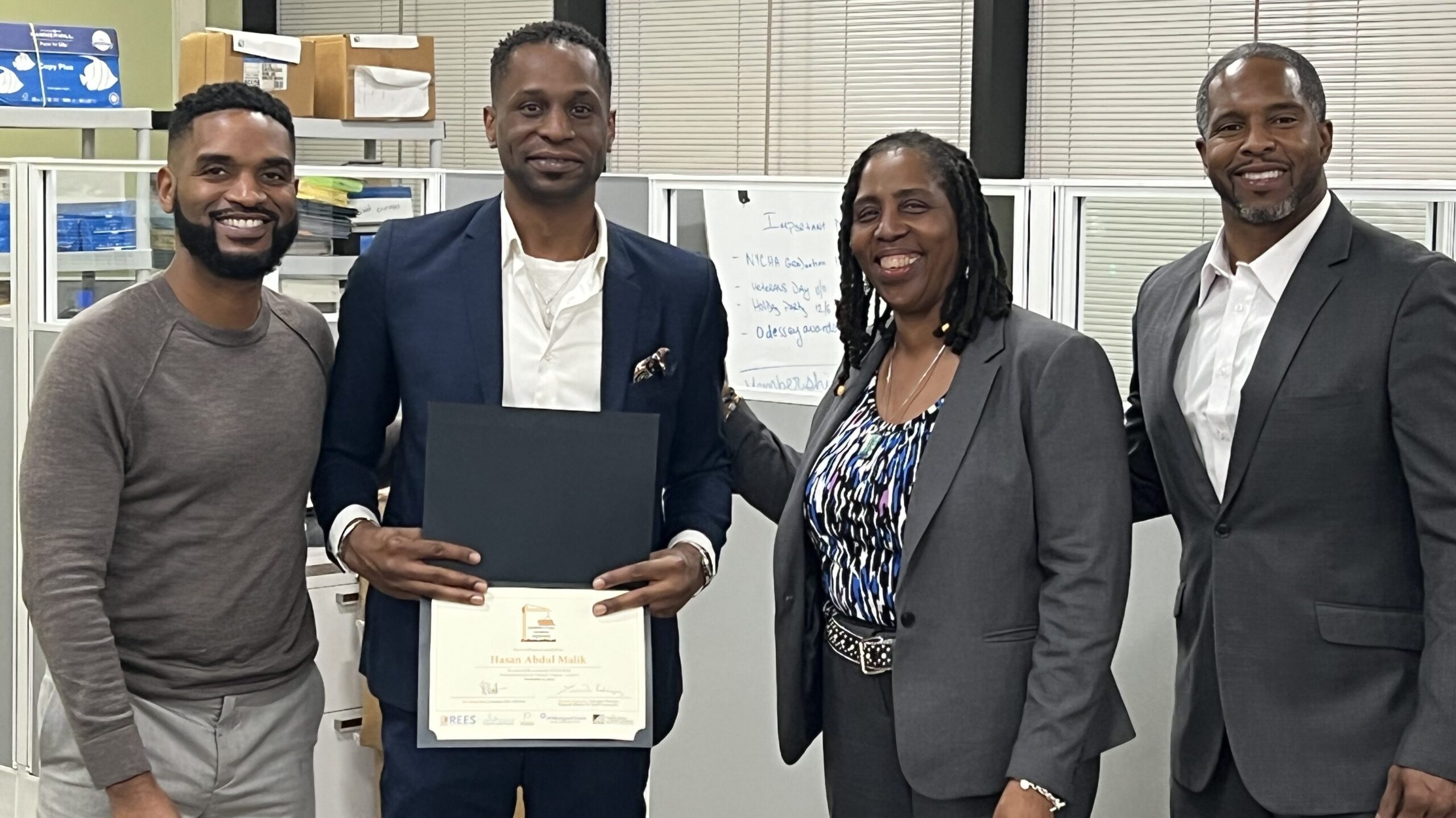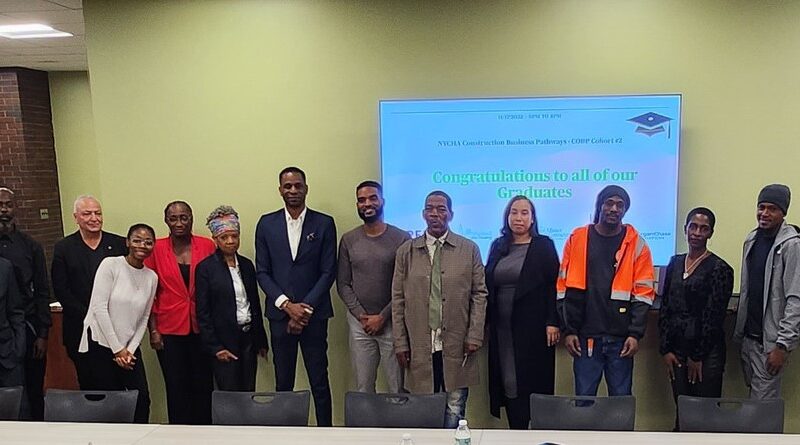Empowering Entrepreneurs: Graduates of NYCHA’S Construction Business Pathways Share Lessons from the Program
When Tashika Woods moved to New York City about five years ago from New Orleans, where she’d been working as a union iron worker, she was looking forward to growing her Black female-owned business, Iron Construction and Contracting Services. But her business struggled to grow.
“Even though I’ve been in business for six years, I was not doing any business,” Ms. Woods said. So, when she received an email about NYCHA’s Construction Business Pathways program, she wasted no time signing up because she knew “the program could assist me in finding different agencies and [help me] build my business.”
Hasan Abdul-Malik, a Van Dyke Houses resident, is a former restauranteur who quit the trade after 16 years to raise his children when he became a single father. Inspired partly by his desire to venture into real estate and the increase in new buildings springing up across New York City, the Brooklyn native decided to start his own cleaning business (3 Degrees Cleaning and Services) three years ago.
“I did have [business] partners, but I didn’t know a lot then,” Mr. Abdul-Malik acknowledged, so he too signed up for the Construction Business Pathways program. “This was a great avenue because it’s NYCHA, and they have a bunch of contracts. NYCHA leads to MTA. MTA leads to Port Authority in my business plan, and Port Authority leads to more government contracts.”
This November, Tashika Woods, Hasan Abdul-Malik, and 11 other NYCHA public housing and Section 8 residents graduated from the 10-week business pathways program funded by JPMorgan Chase Foundation with partnership from the Regional Alliance for Small Contractors.

The graduating class, the second for the program, learned about various construction industry topics, including financial management, construction cost estimation, blueprint readings/construction drawings, marketing, and business registration.
“Completing Construction Business Pathways – where you have gained knowledge in important topics such as how to identify procurement opportunities and bid preparation and marketing plans and techniques for today’s changing economy – is an important step in what will be a multi-year journey to entrepreneurship success,” said Shanna Castillo, Senior Director for Resident Economic Empowerment and Sustainability at NYCHA.
“It was my privilege to present to the most recent graduates of the Construction Business Pathways program,” said Guy Oliveri, NYCHA’s Vice President of Procurement Policy and Performance Management. “Ten weeks and 60 hours is a considerable amount of time and effort and quite the accomplishment! Our Vendor Diversity team is ready to assist the graduates in finding opportunities to do business with NYCHA.”
The program, designed to help entrepreneurs build and grow their own construction businesses, is implemented by the Fund for Public Housing and NYCHA’s Office of Resident Economic Empowerment and Sustainability with funding from JPMorgan Chase Foundation.
“Construction projects start by building strong foundations, and much like this graduating class, entrepreneurs of varying degrees of experience worked over 10 weeks to build a strong foundation of knowledge, frame their understanding of the contract process, learn valuable skills on project and team management, and begin their journey to expand and grow their business,” said Alex Zablocki, Executive Director of the Fund for Public Housing. “Much gratitude to the funder of this impactful program, JPMorgan Chase Foundation, and to our partners at the Regional Alliance for Small Contractors for helping make this program a success.”

Ms. Woods and Mr. Abdul-Malik said the program has armed them with new knowledge to grow their respective businesses.
“I learned how to do a more in-depth business plan for my business,” said Ms. Woods. “I also learned a little bit more about cost and estimation and how to do my Section 3 certification.”
“I learned a lot in regard to pricing, marketing, reading blueprints, business plans, contracts, and language that’s used more in construction than anywhere else,” said Mr. Abdul-Malik. “I’ve noticed that every business has a language and once you master the language of the business, you’re more able to succeed in that business.”
Since graduating from the program, Mr. Abdul-Malik has presented a contract proposal to NYCHA, and Ms. Woods is bidding for contracts with the newfound confidence she said she gained from the program.

